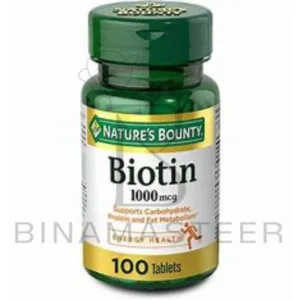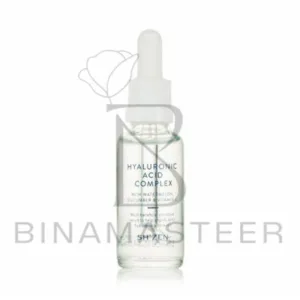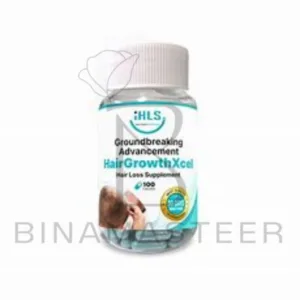news
Hair Health Supplements: Beyond Biotin
For years, the conversation around hair health supplements has been dominated by a single nutrient: biotin. While biotin is undoubtedly important for the production of keratin, the protein that makes up our hair, a holistic approach to hair wellness requires a much broader perspective. The truth is, hair health is a complex symphony of nutrients, and focusing on just one can lead to disappointing results. This comprehensive guide will move beyond the biotin hype, exploring the crucial roles of other vitamins, minerals, and compounds that are essential for strong, healthy hair, and provide a roadmap for a truly comprehensive hair care regimen that works from the inside out.

The Hair Growth Ecosystem: It’s More Than Just One Nutrient
Think of your hair follicle as a garden. You wouldn’t expect a garden to flourish with just one type of fertilizer. Similarly, hair follicles need a wide range of nutrients to thrive.
- Building Blocks: Hair is made of protein, so a steady supply of amino acids is crucial.
- Fuel and Catalysts: Vitamins and minerals act as the catalysts for the growth process, ensuring that the follicle has the energy and support it needs.
- Defense System: Antioxidants protect the follicle from damage that can stunt growth.
- Blood Flow: A healthy scalp and robust blood flow are essential for delivering all these nutrients to the hair roots.
The Unsung Heroes of Hair Health
Beyond biotin, these are the nutrients that you should be focusing on for truly healthy hair.
- Iron: A deficiency in iron is one of the leading causes of hair loss, particularly in women. Iron is essential for oxygen transport, and when the body is low on iron, it diverts oxygen away from non-essential areas like hair follicles.
- Zinc: This mineral is vital for hair tissue growth and repair. It plays a role in regulating the oil glands around the hair follicles and can help with dandruff and a dry scalp.
- Vitamin C: A powerful antioxidant that not only protects hair follicles from damage but is also essential for the production of collagen, a structural protein of the hair follicle. Vitamin C also helps the body absorb iron.
- Vitamin D: Research suggests that Vitamin D plays a key role in the creation of new hair follicles. A deficiency has been linked to various types of hair loss, including alopecia.
- Omega-3 Fatty Acids: These healthy fats are known for their anti-inflammatory properties. They can help reduce scalp inflammation, which can contribute to hair loss. They also add luster and shine to the hair shaft.
- Collagen: As the body’s most abundant protein, collagen provides the amino acids needed for keratin production. Supplementing with collagen can help strengthen the hair shaft and improve its overall structure.
- Vitamin A: This fat-soluble vitamin is essential for cell growth, and a lack of it can lead to hair loss. However, too much Vitamin A can also be toxic and lead to hair loss, so balance is key.

Creating a Comprehensive Hair Supplement Regimen
Instead of relying on a single nutrient, a multi-faceted approach is most effective.
- Get a Blood Test: The most important first step is to identify any underlying deficiencies. Your doctor can test for iron, zinc, and Vitamin D levels.
- Start with the Foundation: A high-quality multivitamin can provide a baseline of all the essential nutrients.
- Target Specific Needs: Based on your blood test results and a doctor’s recommendation, add targeted supplements. For example, if you are iron deficient, you will need a specific iron supplement.
- Consider a “Hair Vitamin” Blend: Many brands offer comprehensive hair supplements that include a blend of biotin, zinc, iron, and a range of B vitamins. This can be a convenient way to ensure you are getting all the essentials.
Lifestyle: The Final Piece of the Puzzle
Supplements can provide the raw materials, but a healthy lifestyle creates the perfect environment for hair growth.
- Protein is King: Ensure you are getting enough protein from sources like eggs, lean meat, fish, and legumes.
- Manage Stress: High levels of stress can trigger a type of hair loss called telogen effluvium. Practice stress-reducing techniques like meditation, yoga, or deep breathing.
- Gentle Care: Avoid harsh chemicals, hot styling tools, and tight hairstyles that pull on the hair.
- Patience is a Virtue: Hair growth is a slow process. It can take three to six months to see a noticeable difference from a supplement regimen.

Conclusion: A Holistic Approach to Hair Wellness
The quest for beautiful, healthy hair is not a sprint; it’s a marathon that requires a holistic, inside-out approach. By moving beyond the singular focus on biotin and embracing the power of a wide range of essential nutrients, you can provide your hair follicles with the support they need to not only survive, but to truly thrive. Nourish your body, manage your stress, and be patient, and you will unlock your hair’s full potential.

